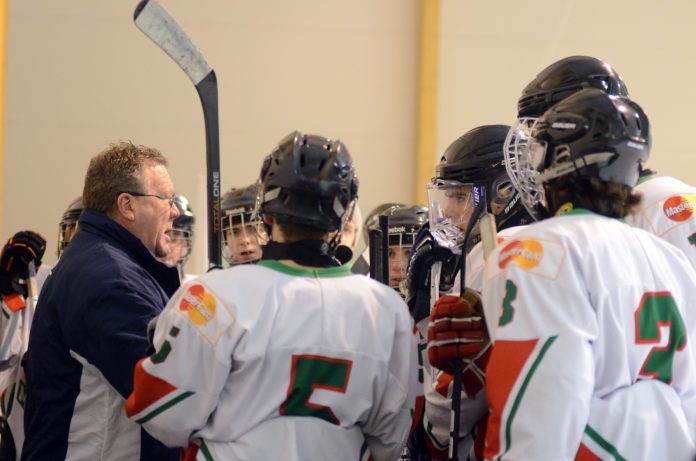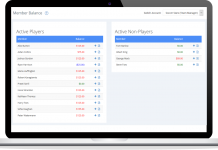So, you’ve volunteered to take on, been volunteered for, got roped into or finally landed your first hockey coaching gig.
Congratulations. Or condolences.
You’ve just become a travel secretary, equipment manager, sports psychologist and drill sergeant. You will wonder why you agreed to do this, and why everybody doesn’t want to — sometimes in the same game.
As you’re mapping out practices, making game plans and managing everyone from your players to your parents to your assistant coaches, here are some tips to consider as you’re prepping for what might be a one-off season coaching your kid, or the first of many years behind the bench.
Know your goals: Before the season, ask yourself what your priorities are — for yourself and your team. What are your greatest hopes? Your minimum expectations? Write them down and consult them often to make sure you’re tracking toward the things you consider most important.
Learn names — and use them: When you see your players for the first time each day, welcome them by name. Kids aren’t used to this sign of respect, and they are likely to respect you for it.
Plan for injuries: People get hurt playing hockey. Handling that inevitability requires more than jamming a first aid kit in a duffel bag. Seek three reliable persons for your Emergency Action Plan — a person in charge who has training in first aid and familiarity with the facility’s emergency equipment; a call person who keeps a list of emergency phone numbers, makes emergency calls and guides the emergency crew into and out of the facility; and a control person, who secures a treatment area for the injured player and makes sure emergency personnel has a clear path to it.
Be clear about rules: Players, especially young ones, will try to bend rules. Make sure everyone knows the rules and consequences for violating them — for example, bullying is not tolerated; first offense, sit for a game, etc. As for parents, give them clear lines of communication — when, where and to whom to express the many thoughts they are certain to have.
Communicate: Game and practice times and locations, fundraising times and deadlines, positive or negative feedback — players and parents shouldn’t have to wonder about any of these things. It doesn’t have to come from you — you can designate a point person for these matters — but everyone should know where to turn for questions.
Talk less, move more: Coaches have been known to close the locker room doors after a tough loss and launch into long harangues in the name of motivation or education. Rarely are those words effective, because fatigued and disappointed children tend not to be very good listeners. Remember always the attention span of the players you are coaching. Focus on one or two skills each practice, no more. Design drills for maximum participation.
Instill pride: Show your players that the team name, jersey and colors should mean something to them and should stand for things — sportsmanship, effort, excellence — of which they can be proud.
Model the behavior you seek: If you want your players to show up prepared, don’t lose your whistle twice a week. If you want your players to respect the officials, don’t work the linesmen all night. Show them you are willing to work as hard as you’re asking them to work. Encourage them, and encourage them to encourage others.
Court growth: Teach. Note progress. Challenge. Every kid you coach should end the season a more fundamentally sound player than he or she was at tryouts.
Above All, Be an Example
This is supposed to be fun. Players and parents alike will follow your lead. Show your love for the game, your dedication to it, and your respect for the people who play it, officiate it and maintain the places that provide you access to it. Don’t forget to smile. Of course, you want your kids to have a great experience, but you should have one, too.
Author bio: AJ Lee is Marketing Coordinator for Pro Stock Hockey, an online resource for pro stock hockey equipment. He was born and raised in the southwest suburbs of Chicago, and has been a huge Blackhawks fan his entire life. AJ picked up his first hockey stick at age 3, and hasn’t put it down yet.







